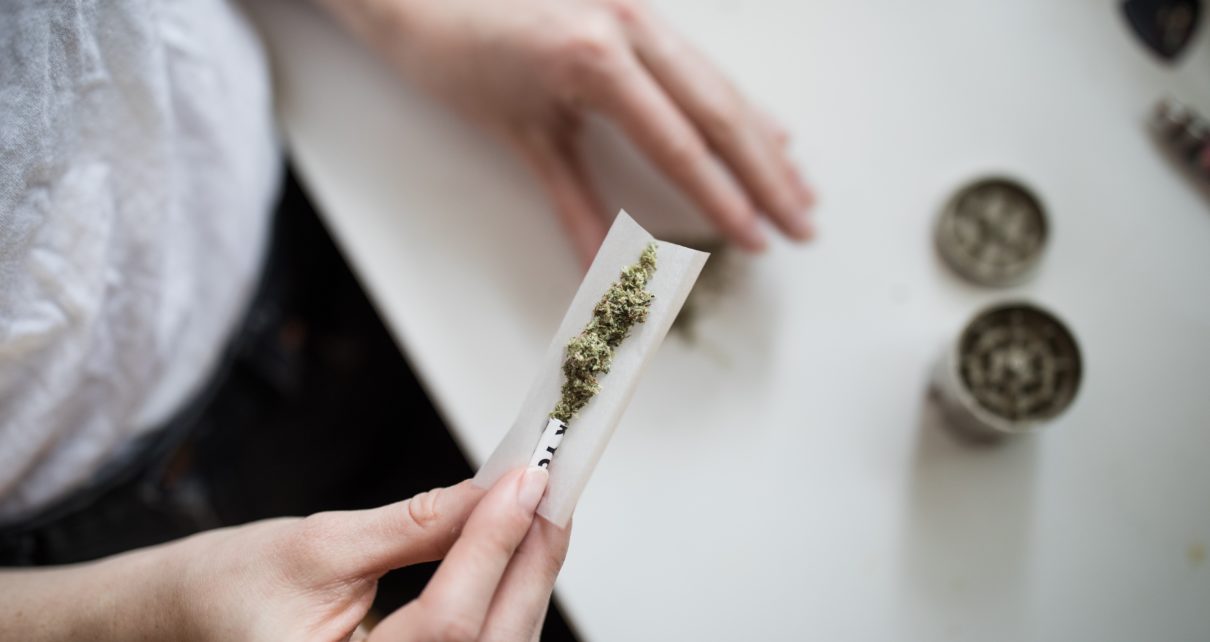Long vilified as a dangerous substance, the cannabis (or marijuana) plant is amid a heyday of sorts. In 1996, with the passage of the Compassionate Use Act, California became the first state to legalize medical marijuana, and the landscape has changed considerably since that time.
As of April 2022, 18 U.S. states, as well as Washington D.C. and Guam, allow adults 21 and older to purchase, possess, and/or grow recreational marijuana to some degree. What’s more, medical marijuana is legal in 37 states, and a further 12 states have decriminalized cannabis, meaning that first-time offenders typically don’t face criminal charges.
Although legal cannabis has become the exception rather than the rule in the U.S., marijuana possession remains illegal under federal law. The result of these conflicting state and federal laws is a confusing landscape of legality, especially for those with a criminal record from past cannabis possession charges. Here’s what you need to know about clearing minor cannabis charges from your record, and why your ability to do so may depend on several factors.
Cannabis: A Bumpy Legal Landscape
For starters, it’s important to understand the basic terminology involved, and what you’re up against. When it comes to your criminal record, what is your goal? Depending on the laws in your state, you may have the option of sealing your criminal record or requesting that it be expunged. Although they sound quite similar, sealing and expunging have vastly different results for your criminal background.
If your cannabis charges are expunged, it means that any record of an arrest or criminal charges filed against you are effectively wiped from existence. Sealed records, in contrast, still exist, legally as well as physically, and may continue to impact your everyday life. Whether your goal is expungement or the sealing of records, relevant laws may vary considerably depending on several factors: The location where charges were filed, the amount possessed, and the severity of the charges.
You may even qualify for automatic expungement in some cases. The following states offer automatic expungement for cannabis offenses that are deemed “minor”: Connecticut, Illinois, New Jersey, New Mexico, New York, Virginia, and Vermont. Additionally, six state governments have passed pardon programs related to marijuana offenses in the wake of legalization. In Nevada, for example, more than 15,000 people previously convicted of possession of one ounce or less of marijuana (not for the purpose of sale) were summarily pardoned following the passage of a June 2020 resolution.
State Marijuana Laws and the Schedule 1 Classification Conflict
Even if you live in a legal state, the reality is that cannabis remains illegal under federal law. Despite the myriad health benefits of cannabis, which have been well documented over the years, marijuana is still classified as a Schedule I substance under the Controlled Substances Act, alongside heroin and LSD.
Schedule I classification is reserved for highly dangerous substances that have “no currently accepted medical use and a high potential for abuse,” according to the United States Drug Enforcement Administration (DEA). Yet that’s not entirely accurate, considering the available data, and the fact that cannabis can be medically prescribed as a treatment for a variety of conditions.
Rather than cannabis itself, it’s actually the cannabinoids tetrahydrocannabinol (THC) and cannabidiol (CBD) that do most of the hard work in terms of medical applications. THC and CBD are just two of the 113 known cannabinoids found in the marijuana plant. Cannabis, or medical marijuana, is regularly used to treat medical conditions ranging from anxiety and post-traumatic stress disorder (PTSD) to glaucoma, chronic pain, and eating disorders.
While CBD has no apparent psychoactive properties, THC produces several short-term effects that appeal to recreational users, which may be physical or mental in nature. Some cannabis users report feelings of calm and relaxation, for example, while others may experience an altered form of perception. In this way, marijuana can change you to some degree, but it’s the legal ramifications of the substance that can be truly life-altering.
How to Clear Marijuana Charges from Your Criminal Record
It’s no secret that even minor criminal charges can tarnish your reputation, negatively impacting various aspects of your personal and professional life. According to legal professionals, people with criminal backgrounds often have difficulty obtaining work and housing due to their records. There’s a strong negative social stigma attached to criminal charges as well, even misdemeanor marijuana offenses. College applicants with a marijuana charge on their record may be looked upon as untrustworthy and are likely to be passed over in favor of candidates with a clean background.

As such, clearing criminal charges from your record may profoundly change your everyday life. Start by learning more about laws and policies in your state related to marijuana legalization, decriminalization, clemency, and expungement, and go from there. You may find that your cannabis charges have already been cleared from the public record, or you may be required to submit a formal expungement request. Visit the Restoration of Rights Project website for state-specific information on getting your cannabis charges reduced or dropped altogether.
Key Takeaways
The call for widespread legalization of marijuana can be heard around the world and for good reason. Today, as more and more states and municipalities loosen their laws on the notorious plant, cannabis users can breathe just a little easier, without fear of legal repercussions. Further, those with a cannabis-related blemish on their permanent record have greater opportunity for recourse and a clean slate.



